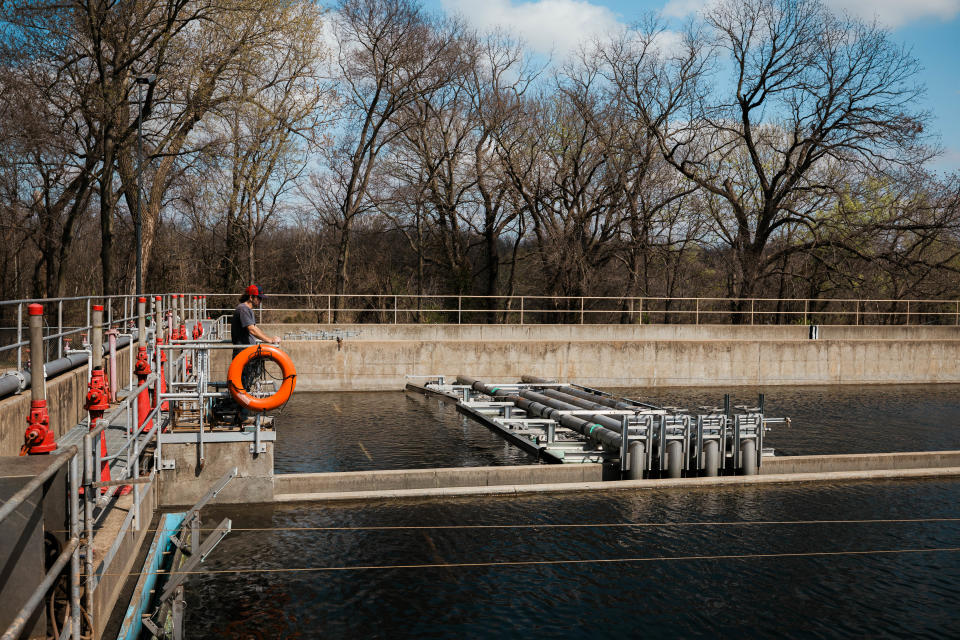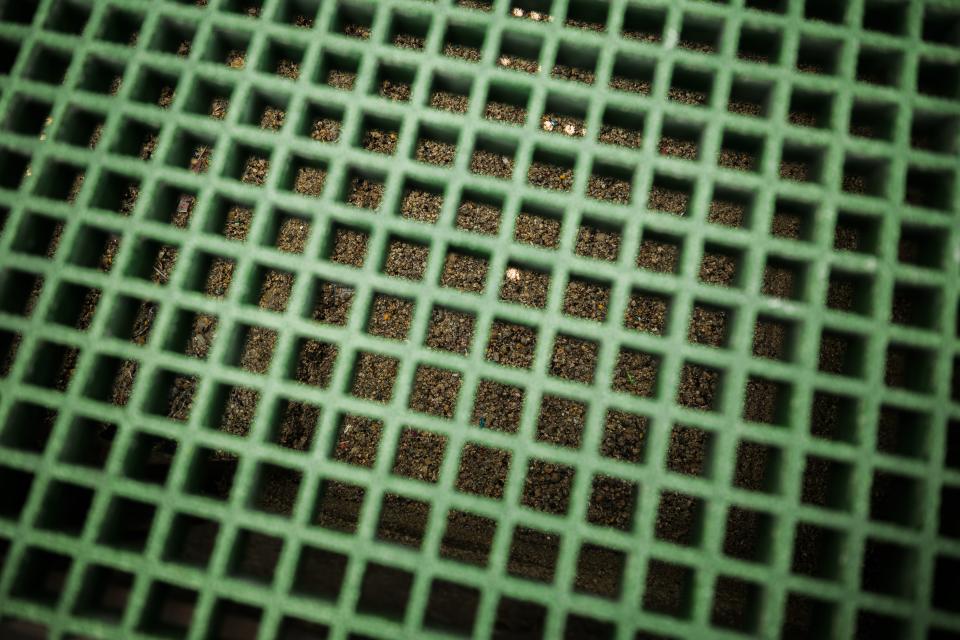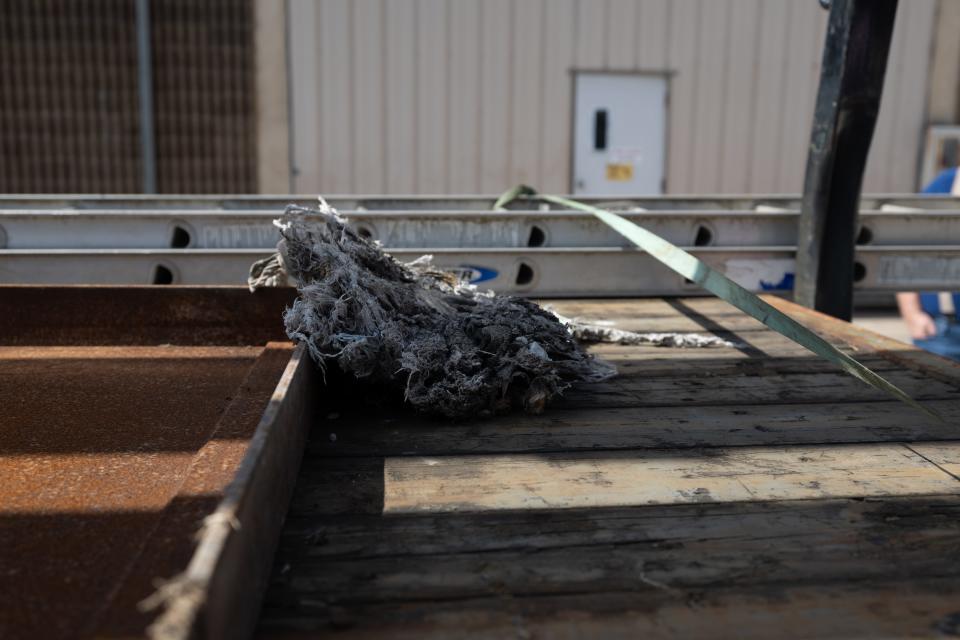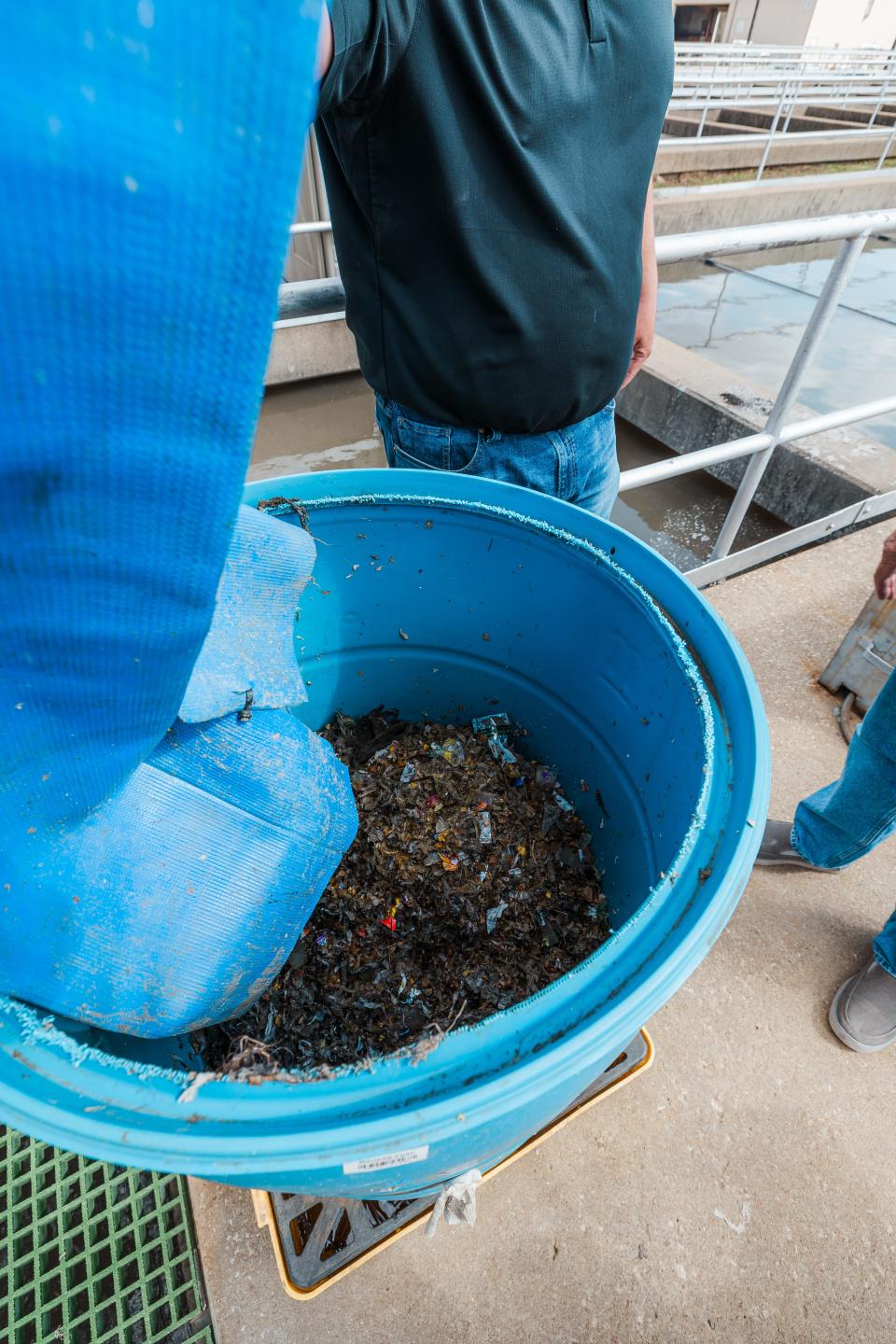Newsflash: Toilets aren't trashcans, city says
In an era where convenience often trumps caution, Bartlesville Water Utilities Director Terry Lauritsen reminds citizens of an invisible issue lurking within the wastewater system.
The culprits behind the scenes of the city's most frequent wastewater woes are fats, oils, and grease (collectively known as F.O.G.), and so-called "flushable" wipes, including baby wipes and feminine products.

These items, along with other unassuming everyday objects like paper towels, dental floss, hair, cotton balls, and even cotton swabs, orchestrate a silent but catastrophic chaos beneath our city streets.
Lauritsen offers a simple test for what should take the plunge down the toilet. Just ask yourself: Is this human waste or toilet paper? If not, then don't.
Lauritsen explained all the "used" water from homes, such as toilets, garbage disposals, and drains, makes a subterranean journey from pumping station to pumping station all the way to the Chickasaw wastewater plant and after treatment into the Caney River.
"It all ends up here," Lauritsen said.
The Titanic fatberg problem
Oils and grease, once flushed, transform into sewer-blocking barriers. Any F.O.G. sent down the sink or washed in the dishwasher cools and congeals, clings to pipes and collects over waste to create fatbergs, choking the flow.
Surprisingly, 50% of sewage overflows are attributed to the improper disposal of F.O.G.

For those wondering how to manage F.O.G. waste responsibly, try these simple tips to alleviate the strain.
Scrape and wipe dishes before washing or putting them in the dishwasher to keep F.O.G. out of the pipes.
Use a strainer instead of a garbage disposal to catch food waste.
For heavy grease, let it cool, can it and then trash it.
"Flushable" isn't an ultimatum
Disposable wipes, even those labeled "flushable," don't disintegrate in the sewer line and slowly accumulate over time, leading to costly sewer backups.
Once again, the list of what not to flush is longer than the list of what is flushable. Feminine hygiene products, diapers, dental floss, paper towels, cotton balls, hair, Q-tips, and condoms should be thrown away in actual trashcans, not toilets.

Moreover, wastewater treatment plants are not equipped to filter out flushed medications and pharmaceuticals. Those chemicals end up in the river, threatening aquatic life.
The FDA says Walmart Pharmacy, CVS and Walgreens all have year-round drug take-back drop-off locations. Just remember to remove all personal information from the pill bottle first.
Bleach, ammonia and paint thinners, oh my!
Just because it's a liquid doesn't mean it goes down the drain. Instead, take it to Operation Clean House.
Operation Clean House is a free event that allows citizens of Washington County to safely drop off household cleaners, yard-care products, acids, paint thinners, household flammable liquids, oil-based paints and more.

Now, this doesn't mean you can drop off anything; no biohazardous or radioactive waste. A complete list can be found on the Operation Clean House Facebook page.
The drop-off is set for 8 a.m. to 2 p.m. on April 20 at two locations depending on the waste: the Phillips 66 downtown parking lot and the District 2 Washington County barn in Dewey.
Each year, more than 10,000 pounds of hazardous waste is removed from the county without harming the environment or endangering human health.
This article originally appeared on Bartlesville Examiner-Enterprise: Keep it poop and paper: City reminds citizens how to use toilet

